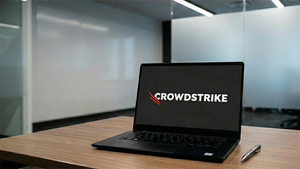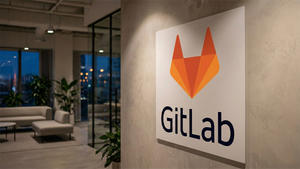--News Direct--
Acute myeloid leukemia (AML) is among the most common types of leukemia in adults. The term leukemia refers to cancers of the bone marrow and blood cells. Doctors refer to AML as “acute” because the condition is known to progress rapidly.
The five-year survival rate for patients with AML is as low as 5%, leading to approximately 11,000 deaths annually in the US. Each year sees 20,000 newly diagnosed cases of AML and, after initial treatments, roughly 50% relapse with a very poor prognosis.
Precigen Inc. (NASDAQ: PGEN), a biopharmaceutical company specializing in the development of novel gene and cell therapies, has developed a ground-breaking technology that enables the treatment of AML using targeted CAR-T therapy administered overnight right at the facility where a patient is being treated.
In some cancers, such as advanced AML, even a day’s delay in treatment could make a difference in survival.
The main treatment for most types of AML is currently chemotherapy, which has been the mainstay of treatment for various types of cancers for decades.
But over the past several years, the U.S. Food and Drug Administration (FDA) has approved new categories of cancer medicines – among them CAR-T – which are transforming the treatment picture of certain cancers effectively, and in some cases helping to stave off cancer for many years.
CAR-T Therapy Developed By Precigen Could Potentially Be A Promising First In The Treatment Of AML
AML progresses very rapidly, making it essential to treat it as quickly as possible. Because of this, autologous CAR-T therapy, which usually takes 3-4 weeks to manufacture for each patient, has not been successful in treating patients with advanced AML.
The current process for making autologous CAR-T therapy involves multiple, time-consuming and costly steps that include drawing patient blood, transporting it to a central manufacturing facility, transfecting the patient’s T cells with a lentivirus for antigen targeting, and expanding the cells for weeks in the lab before shipping the therapy back for infusion into the patient. T cells, a key component of the immune system, help the body fight infection and tumors.
In contrast, Precigen’s technology condenses this time-consuming process into overnight manufacturing using the patient's own cells to make its UltraCAR-T cells.
This is made possible by using the company’s patented UltraPorator®, a custom manufacturing device, designed for decentralized use to enable UltraCAR-T to be made and administered in any hospital where the patient is being treated.
Precigen is conducting a Phase 1b clinical trial of its PRGN-3006 UltraCAR-T in patients with advanced AML who have failed multiple prior therapies.
The company released encouraging clinical data last year, raising hopes that PRGN-3006 could prove to be a significant new treatment choice for relapsed or refractory AML patients who have run out of other options.
Updated data presented earlier this month at the 64th Annual Meeting and Exposition of the American Society of Hematology showed that a single infusion of UltraCAR-T cells following lymphodepletion demonstrated robust expansion and persistence in blood and bone marrow and resulted in a 27 percent objective response rate (ORR) is heavily pre-treated r/r AML patients.
David A. Sallman, MD, Assistant Member in the Department of Malignant Hematology at the H. Lee Moffit Cancer Center and Research Institute, and a lead investigator for the PRGN-3006 clinical trial, said a 27 percent ORR in this patient population, which has limited treatment options, is a significant result. He reported PRGN-3006 has an excellent safety profile with no drug-limiting toxicities observed to date, and noted that a patient who received PRGN-3006 following allo-HSCT has responded to treatment for more than 18 months.
The success of its clinical trials could establish the viability of reducing the processing time of autologous CAR-T therapy for AML from weeks to overnight – a time advantage that could save lives at a significantly lower cost.
Combining The Best Of Autologous And Allogenic CAR-T technology For Optimum Results?
There are two forms of CAR-T (chimeric antigen receptor T cell) technology. One is autologous (custom-made for each patient with the patient's own cells), and the other is allogenic (made with donor-sourced cells and packaged as an off-the-shelf product).
The current market for autologous CAR-T therapy comprises key players including Gilead Sciences, Inc. (NASDAQ: GILD), Bristol-Myers Squibb Co. (NYSE: BMY), Novartis AG (SWX: NOVN) and Johnson & Johnson (NYSE: JNJ).
Although autologous CAR-T has a record of good outcomes, its high cost and prolonged time to manufacture (up to 28 days) have been seen as major drawbacks.
Clinical trials of off-the-shelf allogenic CAR-T have been met with limited success so far. The drawbacks of allogenic CAR-T include reduced durability of response and potential issues relating to the rejection of the donated graft by the patient (graft vs host disease), which could prove to be treatment-limiting and outweigh the potential cost and convenience benefits of this type of treatment.
Companies developing allogeneic CAR-T include Allogene Therapeutics Inc. (NASDAQ: ALLO), Crispr Therapeutics AG (NASDAQ: CRSP), Editas Medicine Inc. (NASDAQ: EDIT) and Caribou Biosciences Inc. (NASDAQ: CRBU).
The Precigen approach seeks to combine the efficacy and safety of autologous CAR-T with the potentially lower cost and convenience of allogenic CAR-T.
Precigen’s UltraCAR-T is a platform technology, potentially adaptable to the treatment of many different cancers, in both liquid and solid tumors. Other UltraCAR-T candidates in development include PRGN-3005 for recurrent platinum-resistant ovarian, fallopian tube or primary peritoneal cancer, and PRGN-3007 for treating a variety of cancers, including chronic lymphocytic leukemia, mantle cell leukemia, acute lymphocytic leukemia and triple-negative breast cancer.
The company also reports that PRGN-3006 UltraCAR-T has demonstrated a favorable safety profile to date with no dose-limiting toxicities or neurotoxicity. PRGN-3006 has also received orphan drug designation and fast track status from the FDA.
"We are very pleased to receive the FDA's Fast Track designation, which facilitates development and expedites the review process of drugs that address serious conditions and high unmet medical needs," says Helen Sabzevari, PhD, President and CEO of Precigen.
Dr. Sabzevari added, "AML is a rapidly progressing disease with a very poor prognosis. The Fast Track designation will help facilitate the timely development of this program and we look forward to working closely with the FDA to potentially bring this new and highly differentiated overnight UltraCAR-T therapy to patients."
Click here for more information about Precigen, Inc. (PGEN)
This post contains sponsored advertising content. This content is for informational purposes only and is not intended to be investing advice.
Photo by National Cancer Institute on Unsplash
Precigen: Advancing Medicine with Precision™Precigen (Nasdaq: PGEN) is a dedicated discovery and clinical stage biopharmaceutical company advancing the next generation of gene and cell therapies using precision technology to target the most urgent and intractable diseases in our core therapeutic areas of immuno-oncology, autoimmune disorders, and infectious diseases. Our technologiesenable us to find innovative solutions for affordable biotherapeutics in a controlled manner. Precigen operates as an innovation engine progressing a preclinical and clinical pipeline of well-differentiated therapies toward clinical proof-of-concept and commercialization. For more information about Precigen, visit www.precigen.com or follow us on Twitter @Precigen, LinkedIn or YouTube.
This post contains sponsored advertising content. This content is for informational purposes only and is not intended to be investing advice.
Some of the statements made in this press release are forward-looking statements. These forward-looking statements are based upon the Company's current expectations and projections about future events and generally relate to plans, objectives, and expectations for the development of the Company's business, including the timing and progress of preclinical studies, clinical trials, discovery programs and related milestones, the promise of the Company's portfolio of therapies, and in particular its CAR-T and AdenoVerse therapies. Although management believes that the plans and objectives reflected in or suggested by these forward-looking statements are reasonable, all forward-looking statements involve risks and uncertainties, including the possibility that the timeline for the Company's clinical trials might be impacted by the COVID-19 pandemic, and actual future results may be materially different from the plans, objectives and expectations expressed in this press release. The Company has no obligation to provide any updates to these forward-looking statements even if its expectations change. All forward-looking statements are expressly qualified in their entirety by this cautionary statement. For further information on potential risks and uncertainties, and other important factors, any of which could cause the Company's actual results to differ from those contained in the forward-looking statements, see the section entitled "Risk Factors" in the Company's most recent Annual Report on Form 10-K and subsequent reports filed with the Securities and Exchange Commission.
Contact Details
Steven M. Harasym
Company Website
View source version on newsdirect.com: https://newsdirect.com/news/precigens-overnight-cell-manufacturing-technology-could-offer-advanced-aml-patients-the-option-of-promising-car-t-therapy-617044025





